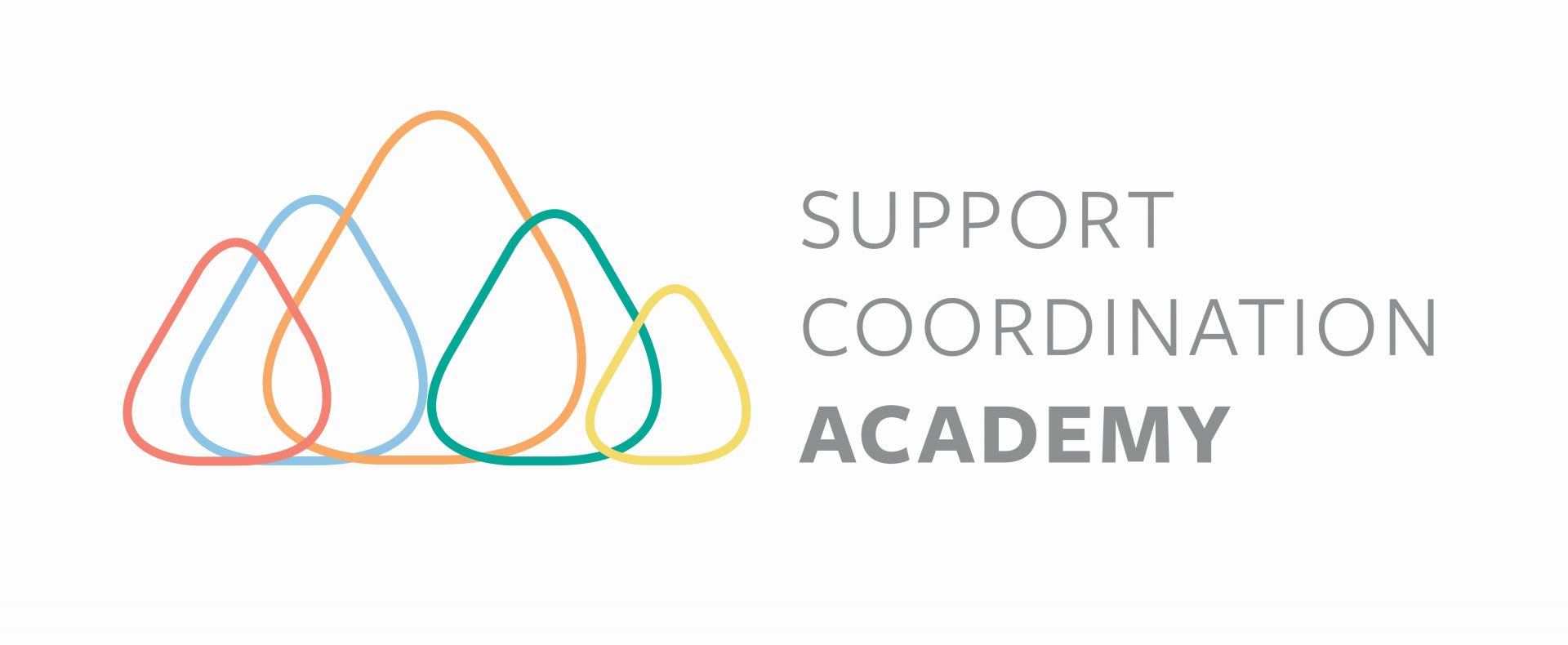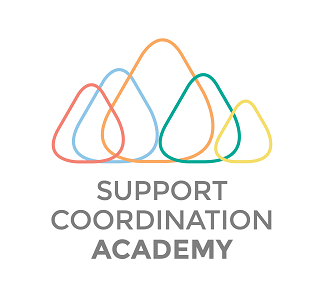Monitor and assess plan budgets and support effectiveness
One of a Support Coordinator’s key roles is
monitoring
plan budgets and the effectiveness of supports. But what does that mean
exactly?
In this blog we'll break down complex
topics like NDIA reporting and introduce you to some fantastic resources
designed to take your Support Coordination services to the next level. We'll
walk you through the comprehensive courses offered by Support Coordination Academy and
show you how they can help you to deepen your knowledge, boost your confidence,
and enhance your practice.
The Importance of Coaching, Refining, and Reflecting in Support Coordination
As a Support Coordinator, your role goes
beyond the basic management of a participant's plan. One of the primary
responsibilities you hold is to coach, refine, and reflect alongside the
participant. This process is critical for the participant to become more
confident and independent when it comes to navigating the NDIS systems and
processes.
1. Coaching: The primary goal is to empower
NDIS participants. This requires guiding them through their plans, ensuring
they understand and can navigate the intricacies of their supports. Your
involvement should foster increased autonomy and skill for the participant.
2. Refining: One of the truths of support
coordination is that no support is ever static. Over time, as the participant's
needs evolve or external circumstances change, supports may need adjustments.
Your expertise will be instrumental in fine-tuning these supports.
3. Reflecting: An essential part of the
process is reflection, especially before plan reassessment. It's crucial to
evaluate what's working well, and what needs to change to support a participant
to achieve their goals.
Regular Conversations: Keeping Track of Progress
Regular conversations between you and the
participant are crucial to gauge how they are progressing with their plan.
These conversations should be documented in reports, such as the initial plan
implementation report, and plan reassessment report.
Using Technology to Enhance Budget Oversight
NDIA Reporting: More Than Just a
Requirement
Sure, reporting to the NDIA is mandatory.
But that’s a narrow way to look at it. These reports, when done correctly,
offer transparency, ensure participant safety, and ensure that every action
aligns with how the participant requires support. This isn't just paperwork;
it's a comprehensive protective mechanism for every stakeholder involved.
Support Coordinators and the NDIS Pricing Arrangements: What You Should Know
Understanding the NDIS Pricing Arrangements
is crucial for your role as a support coordinator. These arrangements detail
the price controls and rules for NDIS supports.
Key Aspects of the Pricing Arrangements
The Pricing Arrangements cover several key
aspects:
- Price limits: The maximum amount that can be charged for a support.
- Travel and non-face-to-face charges: Rules for claiming travel costs and non-face-to-face supports.
-
Cancellations and no-shows:
Guidelines for charging when a participant cancels or does not show up.
Importance for Your Role
Understanding the Pricing Arrangements allows you to:
- Plan effectively: Ensure the participant's plan aligns with the pricing arrangements.
- Advocate: Advocate for the participant in discussions with providers about pricing and charges.
-
Monitor: Monitor the use of the
participant's plan funds and ensure they are being used appropriately.
Remember, the Pricing Arrangements are
there to protect the rights of NDIS participants. As a support coordinator, you
play a vital role in ensuring these rights are upheld.
Support Coordination Academy: Empowering You to Excel
Support Coordination Academy is committed
to providing quality education to support coordinators. Our comprehensive
courses equip you with the knowledge and skills to navigate the NDIS landscape
and deliver outstanding support coordination services. Let's explore how our
courses can help you excel in your role.
Support Coordination Fundamentals
Are you new to the role of support
coordination or keen to reinforce your foundational knowledge? The Support
Coordination Fundamentals course is designed with you in mind.
Understanding Your Role
The course begins with an in-depth
exploration of a support coordinator's responsibilities. Here, you'll learn
about your duties, the scope of your role, and the importance of safeguarding
participants' rights and well-being.
Delving Deeper
The course then delves into the different levels of support coordination, helping you understand the varying complexities and requirements at each level.
Next, you'll unpack a participant's NDIS
plan. This section equips you with the ability to comprehend the intricate
details of a plan and understand how it's tailored to meet the participant's
needs.
Plan Management and Reviews
The course also covers plan management
options, budget flexibility, and the review process. This knowledge is critical
for monitoring plan budgets effectively and understanding when and how to seek
plan reviews.
Addressing Conflict of Interest
You'll learn about conflict of interest and
billable hours, two crucial aspects that can impact your role and the services
you provide. Understanding these elements is key to maintaining ethical and
transparent practices.
Going the Distance
Finally, the course guides you on 'going
the distance' in the support coordinator role. This means sustaining your
efforts and delivering high-quality, participant-focused support over time.
Support Coordination Professional Practice
Are you ready to go beyond the fundamentals and delve into the nitty-gritty of support coordination? The Support Coordination Professional Practice course takes you there.
This course consists of five online,
self-paced modules:
2. Managing Crisis and Significant Change: Understand how to navigate situations of crisis or significant change, ensuring participants continue to receive the support they need during challenging times.
3. Reasonable and Necessary & Mainstream Interface: Gain insight into what is considered 'reasonable and necessary' under the NDIS, and how to interface with mainstream services.
4. Case Notes - Action Plans - NDIS Reporting: Master the art of documentation, from writing effective case notes to developing action plans and fulfilling NDIS reporting requirements.
5. Influence Conversations & Navigating Complex Environments: Learn how to influence conversations to advocate for participants effectively and navigate complex environments.
These courses from Support Coordination
Academy are designed to equip you with the knowledge and skills you need to
excel as a support coordinator. By understanding the intricacies of the NDIS,
mastering the art of report writing, and honing your skills in influencing conversations
and managing crises, you'll be well-equipped to provide exceptional support to
NDIS participants.
Support coordination is undoubtedly a
challenging role, but it's also deeply rewarding. As you navigate through the
complexities of the NDIS, remember that your work is making a profound impact
on the lives of participants. You are their ally in a complex system, their
guide in a challenging journey, and their support in a transformative
experience.
So, keep learning, keep growing, and keep doing the incredible work you do.


